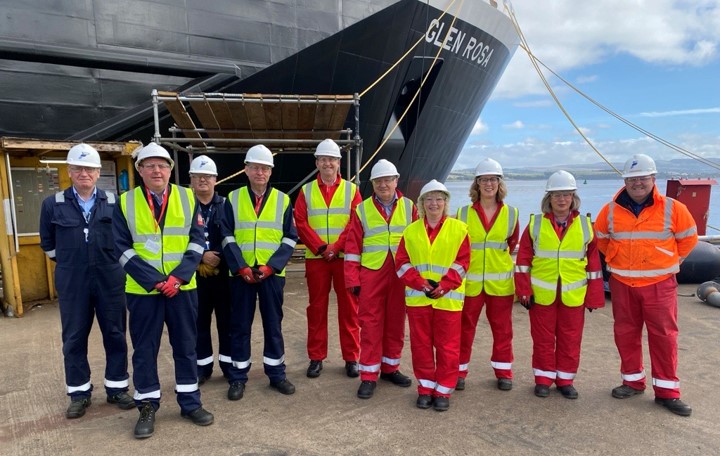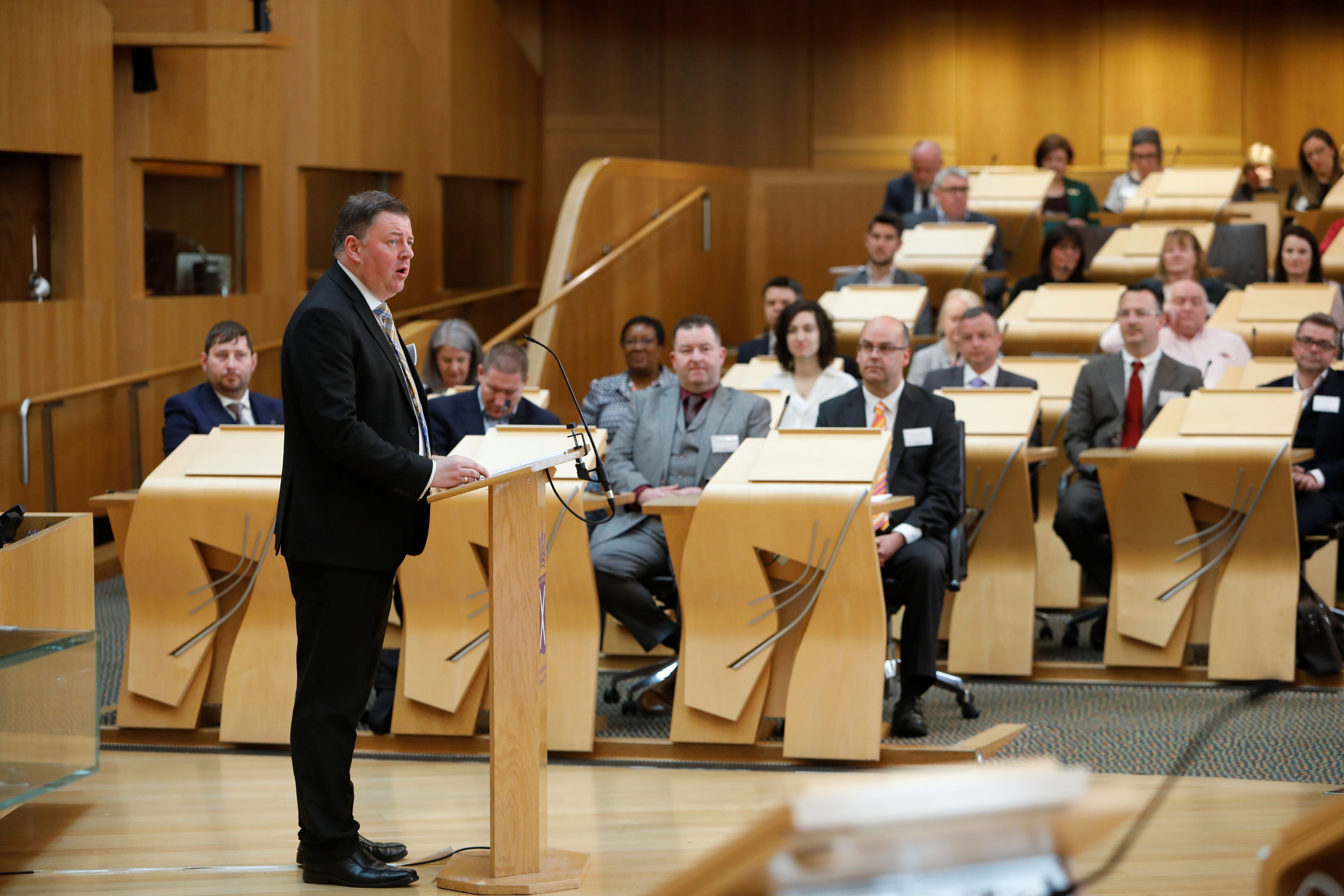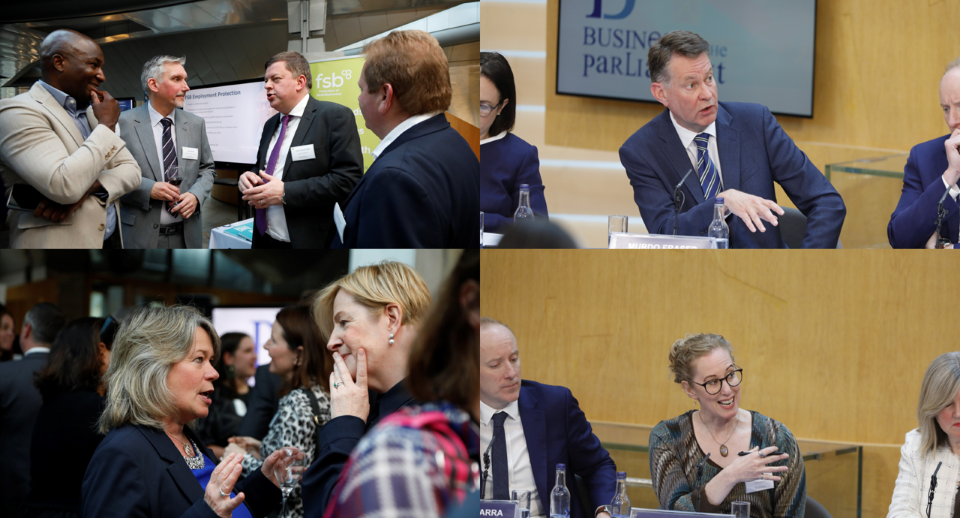Economy and Fair Work Committee
Annual report of the Economy and Fair Work Committee 2024-25
Introduction
This report sets out the work of the Economy and Fair Work Committee during the parliamentary year from 13 May 2024 to 12 May 2025.
The following changes to Committee membership occurred during the course of this parliamentary year—
On 19 June 2024, Willie Coffey replaced Evelyn Tweed, Lorna Slater replaced Maggie Chapman, and Michelle Thomson replaced Colin Beattie.
On 10 October 2024, Jamie Halcro Johnston replaced Brian Whittle.
On 6 November 2024, Daniel Johnson replaced Claire Baker.
Meetings
The Committee met 33 times during the reporting period. Three of these meetings were held entirely in private, and 30 meetings included items in private. One meeting was held entirely in public. The reasons for taking business in private were—
Consideration of approach papers;
Consideration of correspondence;
Consideration of draft reports;
Consideration of evidence received; and
Consideration of the Committee's work programme.
During the reporting year, the Committee heard from 118 witnesses, representing 71 businesses and organisations.
Legislation
Bills
Community Wealth Building (Scotland) Bill
The Community Wealth Building (Scotland) Bill was referred to the Committee for Stage 1 scrutiny on 2 April 2025.
The Bill aims to ensure consistent implementation of the community wealth building model across Scotland. The Bill would instruct Ministers to publish both guidance and a statement, setting out the measures they intend to take in relation to community wealth building.
The Committee is currently seeking responses to its call for views until 23 May 2025 and will start taking evidence from various stakeholders in June 2025.
Subordinate Legislation
The Committee considered 17 Scottish Statutory Instruments, including—
10 affirmative; and
4 negative
The Committee considered the Diligence against Earnings (Variation) (Scotland) Regulations 2024, which amend the figures in part 3 of the Debtors (Scotland) Act 1987, detailing the amount of money an individual is allowed to keep before deductions are made from their wages to recover debts. The regulations increase that amount to £750 a month. The Committee recommended in its Stage 1 report on the Bankruptcy and Diligence (Scotland) Bill that this figure should increase to £1,000 a month.
The Committee heard from the Minister for Public Finance on 27 November 2024 that the Scottish Government would consult on the protected minimum amount and bandings in early 2025. The Committee noted the regulations.
Legislative Consent Memorandums
The Committee considered three Legislative Consent Memorandums (LCMs)—
and one supplementary LCM—
The Committee recommended consent for the Data (Use and Access) Bill LCM. The Committee noted that the Scottish Government intends to lodge a second supplementary LCM on the Product Regulation and Metrology Bill, and will consider this when lodged.
The Committee is currently considering a report on the Employment Rights Bill LCM. This will be published in the next reporting period.
Inquiries
The Committee undertook two longer inquiries during the reporting period—
Disability Employment Gap
In February 2024, the Committee undertook an inquiry to identify the barriers that might limit the ability of disabled people to get and keep a job and to consider how these might be addressed.
The Committee received written and oral evidence and held engagement sessions to hear the views of disabled people. Speech-to-Text Reporters were also used to ensure a deaf witness could give evidence to the Committee.
The Committee published its report in October 2024, and produced alternative formats to allow as many people to access the content as possible. An Easy Read version of the report was published, along with a BSL video.
Scotland's City and Regional Growth Deals
The Committee held an inquiry into Scotland's City and Regional Growth Deals to consider whether or not the deals are: achieving long-term improvements to regional economies, attracting investment, creating new jobs, and accelerating inclusive economic growth.
Prior to the first evidence session, the Committee visited the National Robotarium at Heriot-Watt University, which is a growth deal project. Members toured the facility and learned about the advances that have been made in robotics and artificial intelligence.
.jpg)
The Committee received both written and oral evidence, including hearing from the Rt Hon. Ian Murray, Secretary of State for Scotland. This was the first time the Secretary of State for Scotland had given evidence to a Scottish Parliament Committee.
The Committee published its report on 9 May 2025.
Other scrutiny and shorter inquiry work
In addition to the longer inquiries, much of the Committee's time has been spent undertaking more agile, shorter scrutiny and inquiry work.
2025-2026 Budget Scrutiny
Given their roles in supporting economic and business growth, the Committee agreed this year's pre-budget focus would be the Scottish National Investment Bank, the Enterprise Agencies, and VisitScotland.
The Committee wrote to the Deputy First Minister and Cabinet Secretary for Economy and Gaelic, emphasising three areas where Scottish Government spend should be maintained: support for businesses; support for women's enterprise; and skills development. The Committee highlighted that key barriers to delivery included the lack of multi-year funding, and the availability of housing to support jobs.
Following the publication of the budget in December 2024, the Committee heard from the Deputy First Minister and Cabinet Secretary for Economy and Gaelic in January 2025. The Deputy First Minister and Cabinet Secretary for Economy and Gaelic wrote to the Committee with an update in February 2025.
New Deal for Business
The Scottish Government announced the New Deal for Business in April 2023. Following this, a New Deal for Business Group (NDBG) was established. In October 2023, the NDBG published an implementation plan to deliver its recommendations, setting out key actions and measurements of success.
The Committee held a series of evidence sessions to consider the New Deal for Business and the progress that has been made against the implementation plan. The Committee heard oral evidence, and received written submissions from the Diffley Partnership and the Scottish Tourism Alliance.
The Committee heard from the Deputy First Minister and Cabinet Secretary for Economy and Gaelic in March 2025 and will write to the Scottish Government with its findings in late May 2025.
Skills Delivery
Following the independent review of the skills delivery landscape, published in 2023, the Committee considered how the current skills system is working to identify the actions needed to support businesses and to improve the skills supply chain, including green skills.
The Committee held five evidence sessions, and will share its findings with the Scottish Government and the Education, Children and Young People Committee (ECYPC) which is carrying out Stage 1 scrutiny of the Tertiary, Education and Training (Funding and Governance) (Scotland) Bill.
Petroineos Grangemouth
The Committee previously held an inquiry into a Just Transition for the Grangemouth area, looking at how to support, incentivise and de-risk the transition in a way that benefits both businesses and individuals. The Committee's report was published on 21 June 2023.
In September 2024, Petroineos announced that the Grangemouth refinery would transition into a finished fuels import terminal and distribution hub during the second quarter of 2025. An assessment commissioned by the Scottish Government of the Grangemouth Refinery's recent economic contribution was published in October 2024.
Following publication of this assessment, the Committee invited INEOS Grangemouth and Petroineos Manufacturing Scotland Ltd to give evidence and provide an update on developments. The Committee also heard from Unite the Union and GMB Scotland, the two main trade unions representing workers at the site.
In March 2025, Project Willow, a feasibility study into different industrial options for the future of Grangemouth, was published. This was jointly-funded by the UK and Scottish Governments.
Following the publication of Project Willow, the Committee will hold additional evidence sessions on Grangemouth. These will take place in the next reporting period.
Ferguson Marine Port Glasgow
As part of its ongoing scrutiny of the Scottish Government's direct role in providing financial support to private companies, the Committee visited the Ferguson Marine Port Glasgow shipyard.
The Committee visited the shipyard in September 2024, touring both Glen Sannox and Glen Rosa ferries and meeting with trade union representatives and apprentices.

Other evidence sessions
Throughout the year, the Committee held focused sessions on a range of issues, including a review of the National Outcomes set out in the National Performance Framework. The Committee also heard from the Fair Work Convention.
The Committee held an evidence session with the Keeper of the Registers of Scotland in October 2024 and continues to receive monthly updates.
Equal Opportunities
The Committee is keen to ensure that it hears from a diverse range of people when taking evidence and asks organisations to consider this when identifying people to engage with the Committee.
In some circumstances, the Committee hears evidence from people attending virtually, allowing for a wider range of voices to be heard from across the country.
Post-Legislative Scrutiny
During the previous reporting period, the Committee undertook Post-Legislative Scrutiny of the Procurement Reform (Scotland) Act 2014.
The Committee launched a call for views, receiving 21 submissions and held evidence sessions starting in February 2024. The Committee published its report on 21 June 2024.
16th Business in the Parliament Conference
The 16th Business in the Parliament Conference (a joint venture between the Scottish Parliament and the Scottish Government) was held in April 2025. The theme was 'A Workforce for the Future'. The event is sponsored by the Committee and was opened by the Convener.

Members of the Committee supported the conference at panel sessions and contributed to cross-party panel discussions. The next conference will take place in Session 7.

Witness Diversity Programme
The second Witness Diversity Programme took place in October 2024, organised by the Committee, in partnership with Institute of Directors (IoD) and Women's Enterprise Scotland (WES). The aim of the programme was to encourage more women to become actively involved in the work of the Scottish Parliament; to have their views heard; and to encourage them to contribute to call for views and give evidence to a committee.
Eighteen women participated in the programme, where they heard presentations from previous witnesses and officials and took part in activities designed to make the Scottish Parliament a more familiar and accessible environment. Participants met with three members of the Economy and Fair Work Committee and the Presiding Officer.
One organisation who participated in the programme gave evidence as part of the Committee's scrutiny of the New Deal for Business. Other organisations were contacted for their views on the New Deal for Business and also the Committee's scrutiny of Skills Delivery.
